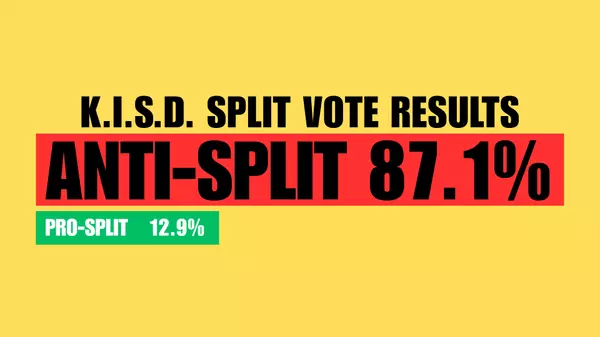5 Questions to Ask Your Mortgage Lender Before Refinancing Your Home


Ask Your Mortgage Lender These Five Questions Before You Refinance
With mortgage rates at a relative low, more homeowners than ever are looking for a solution to save on their significantly higher home payments. For many, this means turning to home mortgage refinancing. However, refinancing isn’t for everyone, and may even wind up costing you more in the future if you fail to consider some crucial details. How can you find out if a refi makes financial sense for you?
Consult Your Mortgage Lender
The financial sense of a mortgage refi depends much more on your personal situation and your mortgage terms than on current mortgage rates. For that reason, it’s essential to discuss all aspects of a potential refi with your mortgage lender before making your decision. Here are some key questions to ask during the discussion:
1.Can I Qualify?

A mortgage refinancing application should be prefaced by what is potentially the most important part of any conversation with your mortgage lender — do you have what it takes to qualify? Walk into the discussion with a knowledge of your credit score, debt-to-income ratio, and the loan-to-value ratio of the home. These three aspects of your financial health are the three most important parts of any application for a mortgage backed by agencies like Freddie Mac or Fannie Mae.
If your credit isn’t stellar or you’ve accumulated a great deal of other debt since the purchase of your home, you’re not necessarily disqualified from refinancing. However, your refi rates may not be low enough to justify the process. Alternatively, you may wind up needing to refi for a longer term than you’d like to offset a lower rate.
Related: How to Get a Free Credit Report
2. Do I have the equity to refinance?

Equity is the difference between the current value of your home and the amount you owe on the mortgage. Mortgage lenders prefer to see that you’ve built up equity in your home to refinance it, and the more equity you’ve accumulated, the better. With home values in general on the rise, chances are you have at least some equity to work with.
In order to qualify for a new mortgage refi loan and avoid paying private mortgage insurance (PMI), you’ll need to have at least 20% equity. If you don’t, the cost of PMI can negate any potential interest savings you’d see with a new refi loan. For those without enough equity to warrant a traditional refinance, a cash-in refi where you pay down your mortgage at closing and reduce your balance while capturing a lower rate may be an option.
3. What are the terms of my quote?

If you’ve qualified and have plenty of equity available for a new refi mortgage, it’s crucial to request a quote and study its terms. After all, a refi is a brand-new loan with a different rate than your previous mortgage, and it comes with new terms and amortization schedule in the process. As with any new loan, your interest rate and the term length of the loan work in conjunction to determine how much you’ll pay over its life.
If your goal is to reduce your monthly payment, you’ll want to ensure you have the lowest rate possible spread out over a longer period — consider a 30-year loan to minimize your payment. However, the longer you pay on a loan, the more you’ll pay in interest, even if your rate is relatively low. If you’re interested in reducing your total costs over the term of your loan, look for a low interest rate over a shorter term; this practice results in higher monthly payments but avoids extra years of interest payments.
Related: Is a Bigger House Within Your Budget?
4. What does my quote include?

Aside from interest rates and mortgage term, your mortgage lender's quote should include a breakdown of all other related costs. Typically, a more detailed quote will list the amount of your monthly payment that goes toward the principal, what's paid toward interest, and any monthly payment that's reserved for other expenses. Specifically, ask your lender if your quote includes taxes and insurance.
5. What are my costs?

Refinancing a loan usually comes at a cost — on average, expect to pay two to three percent of the loan amount. When you’re working with a loan of $200,000, those percentages can add up to $4,000 to $6,000 depending on your home cost and your area. Closing costs often include bank fees, appraisals, attorney fees, and other expenses you may not have anticipated.
Ask your lender what funds you need to bring to closing. If you’re looking to save money month to month and have the cash on hand, consider paying closing costs outright. However, if you’re not comfortable paying costs at closing, you can roll them into your loan. Unfortunately, this increases your principal and has the potential to raise your payments.
Refinancing is an attractive option for many homeowners looking to take advantage of currently low interest rates. However, it’s important to ask your mortgage lender the right questions to make sure it’s a smart financial move for you. If you follow the above list and add in questions unique to your financial situation, you’re off to a solid start.
Sources:
Merrimackvalleymarealestate.com
Written by Chandler Crouch
Broker/Owner at Chandler Crouch Realtors
See more media features on our News page
Categories
- All Blogs (119)
- Basics (17)
- Buyer Psychology (3)
- Career (1)
- CCR in the News (14)
- Community (23)
- Downsizing (3)
- Election (6)
- Financial Advice (14)
- Foreclosure (1)
- Heritage Subdivision (3)
- Home Refinancing (4)
- Home Search (2)
- How-to (22)
- HUD Homes (2)
- Just for fun (10)
- Legislative Involvement (6)
- Making an offer (5)
- Mortgage (2)
- Negotation (4)
- Preparing to Sell (10)
- Print media (3)
- Property Tax (53)
- Real Estate Market Report (26)
- Robert Montoya (1)
- Sell (1)
- Senior Housing (1)
- State (5)
- Static (1)
- TAD Reform (8)
- Tarrant County (15)
- Testifying (2)
Recent Posts











